Publications
Articles, publications, books, tools and multimedia features from the U.S. Institute of Peace provide the latest news, analysis, research findings, practitioner guides and reports, all related to the conflict zones and issues that are at the center of the Institute’s work to prevent and reduce violent conflict.
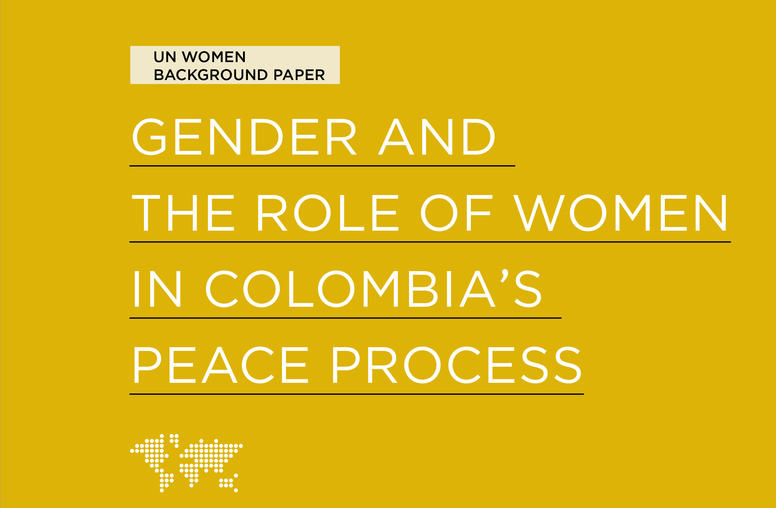
Gender and the Role of Women in Colombia's Peace Process
The promises and visions articulated in United Nations Security Council Resolution 1325 and subsequent UN resolutions and position papers that recognize the connection between gender equity and women’s participation in all aspects of peace processes and peacebuilding on the one hand, and international peace and security on the other, have not been fulfilled. Nonetheless, these resolutions have opened the way for advocacy that has had some successes in specific contexts. Colombia offers one su...
Praise for American Negotiating Behavior
“American Negotiating Behavior is a truly unique study of the American negotiator because it explores the foreign perception of American negotiators.” —Zbigniew Brzezinski, Counselor and Trustee, Center for Strategic and International Studies “Diplomacy has never been more vital for Americans than in our increasingly globalized twenty- first century. Richard Solomon and Nigel Quinney have written a fascinating and perceptive book on how American diplomats have succeeded, and sometime...
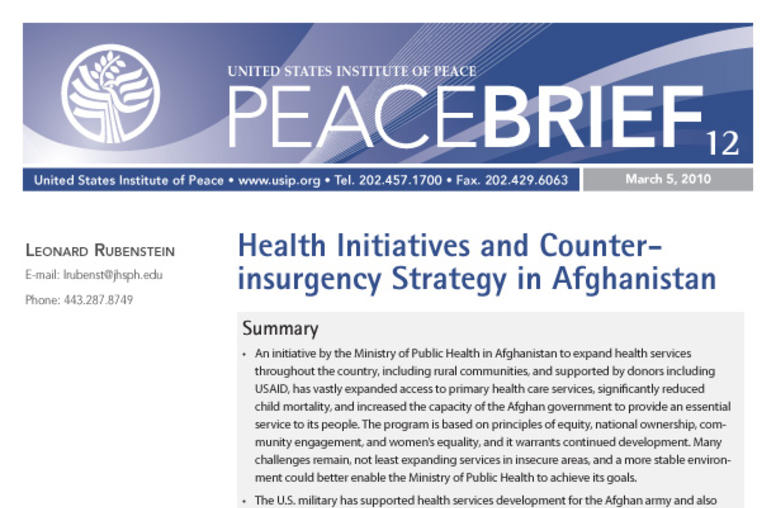
Health Initiatives and Counterinsurgency Strategy in Afghanistan
An initiative by the Ministry of Public Health in Afghanistan to expand health services throughout the country, including rural communities, and supported by donors including USAID, has vastly expanded access to primary health care services, significantly reduced child mortality, and increased the capacity of the Afghan government to provide an essential service to its people.
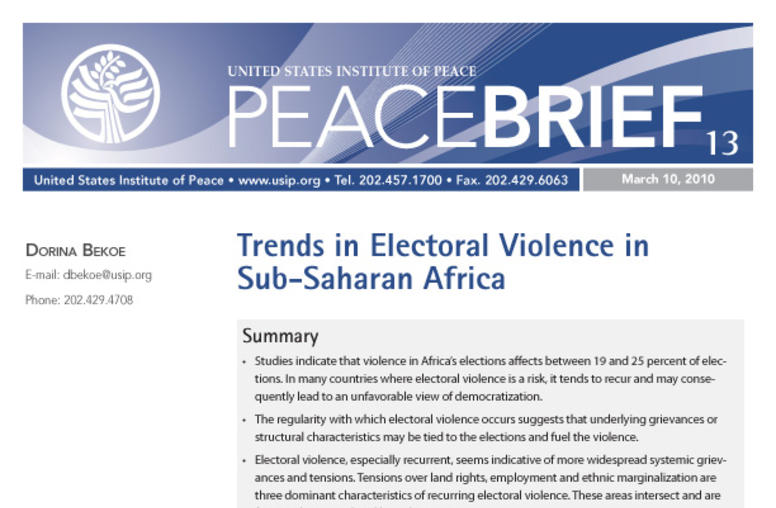
Trends in Electoral Violence in Sub-Saharan Africa
Studies indicate that violence in Africa’s elections affects between 19 and 25 percent of elections. In many countries where electoral violence is a risk, it tends to recur and may consequently lead to an unfavorable view of democratization.
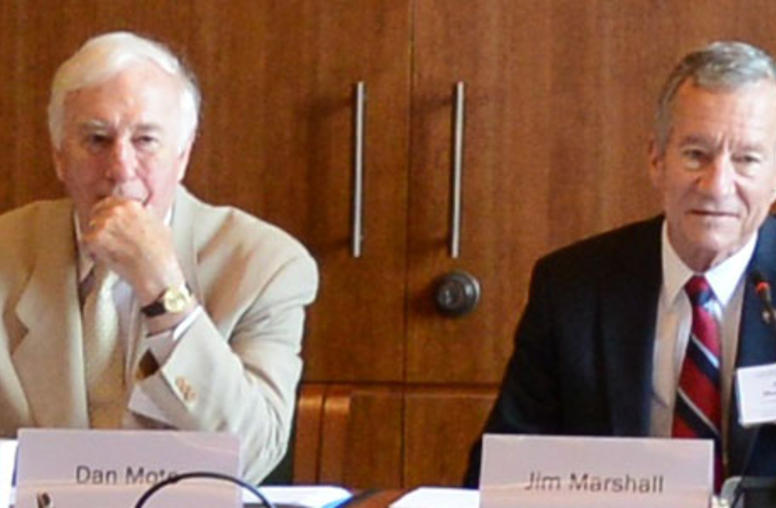
Roundtable on Technology, Science, and Peacebuilding
The National Academy of Engineering and the U.S. Institute of Peace have established a Roundtable on Technology, Science and Peacebuilding to use science and technology to make a measurable and positive impact on conflict management, peacebuilding, and security capabilities.
Smart Tools for Smart Power
The Center of Innovation for Science, Technology, and Peacebuilding's “Smart Tools for Smart Power” initiative brings together peacebuilding practitioners and technology innovators to identify high-impact opportunities for technology to bolster peacebuilding and stability operations.
Science Diplomacy for Conflict Prevention
The Center of Innovation for Science, Technology, and Peacebuilding is evaluating the potential for international scientific and technical collaborations to aid in conflict prevention and resolution.
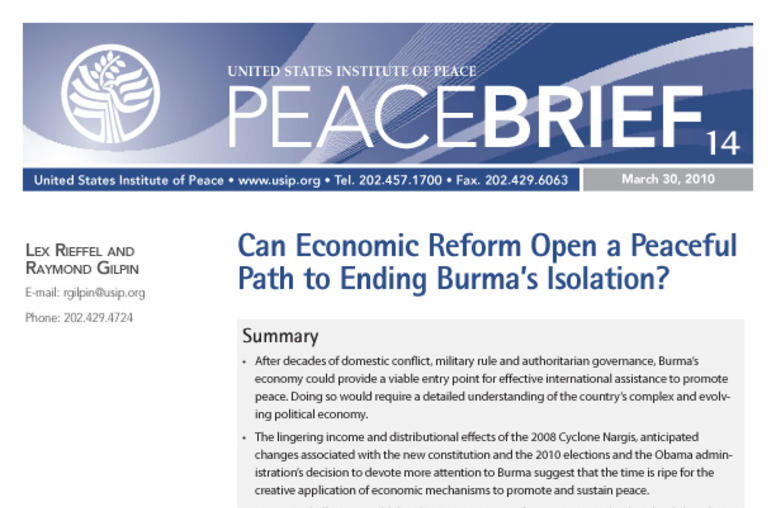
Can Economic Reform Open a Peaceful Path to Ending Burma’s Isolation?
After decades of domestic conflict, military rule and authoritarian governance, Burma’s economy could provide a viable entry point for effective international assistance to promote peace. Doing so would require a detailed understanding of the country’s complex and evolving political economy.
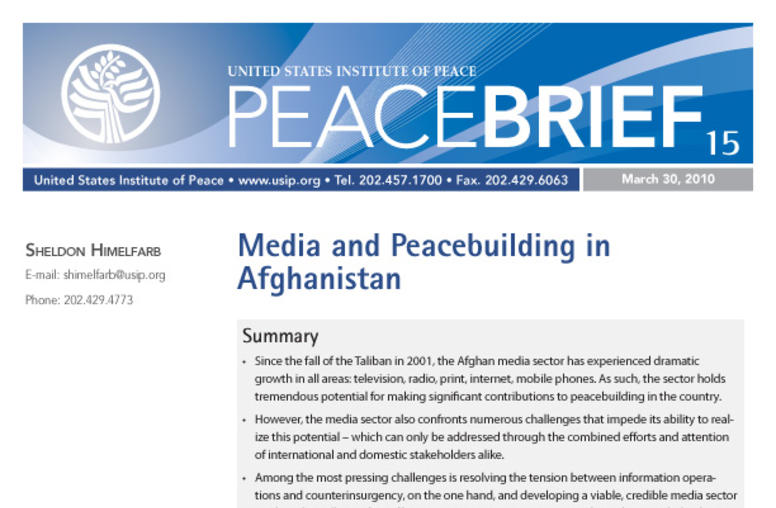
Media and Peacebuilding in Afghanistan
Since the fall of the Taliban in 2001, the Afghan media sector has experienced dramatic growth in all areas: television, radio, print, internet, mobile phones. As such, the sector holds tremendous potential for making significant contributions to peacebuilding in the country.
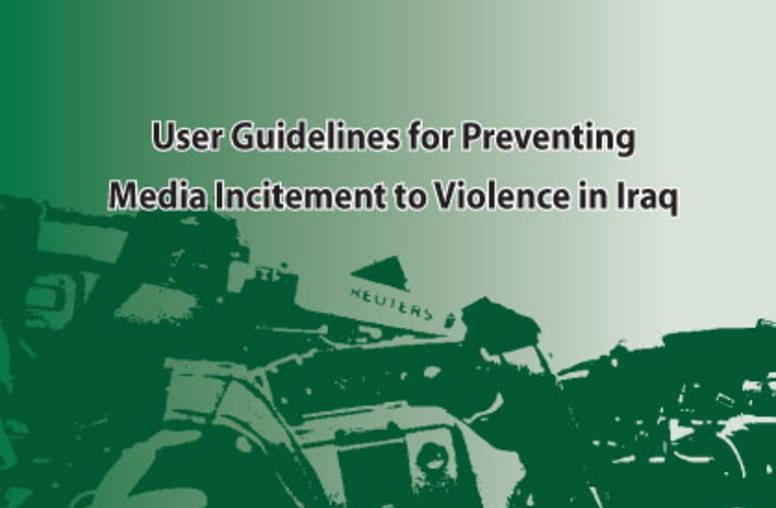
User Guidelines for Preventing Media Incitement to Violence in Iraq - Elections Edition
The guidelines are designed as a self-regulatory tool for media to gain awareness about the dangers of inflammatory language in reporting on elections. This Arabic resource, which includes suggested alternatives to facilitate more conflict-sensitive reporting, has been distributed to Iraqi media outlets and government offices prior to Election Day in Iraq.